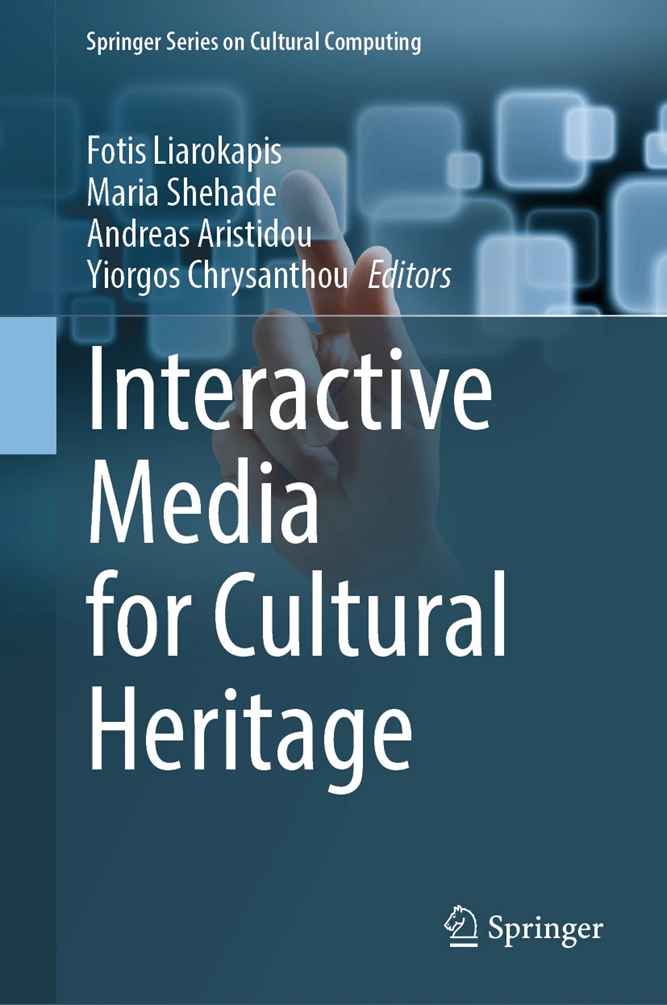Recently, the latest edited book I co-authored with colleagues from CYENS – Centre of Excellence and the University of Cyprus was published by Springer Series on Cultural Computing. The book is entitled ‘Interactive Media for Cultural Heritage’ and presents the full range of interactive media technologies and their applications in Digital Cultural Heritage. It offers a forum for interaction and collaboration among the interactive media and cultural heritage research communities.
The aim of this book is to provide a point of reference for the latest advancements in the different fields of interactive media applied in Digital Cultural Heritage research, ranging from visual data acquisition, classification, analysis and synthesis, 3D modelling and reconstruction, to new forms of interactive media presentation, visualization and immersive experience provision via extended reality, collaborative spaces, serious games and digital storytelling.
More information:



